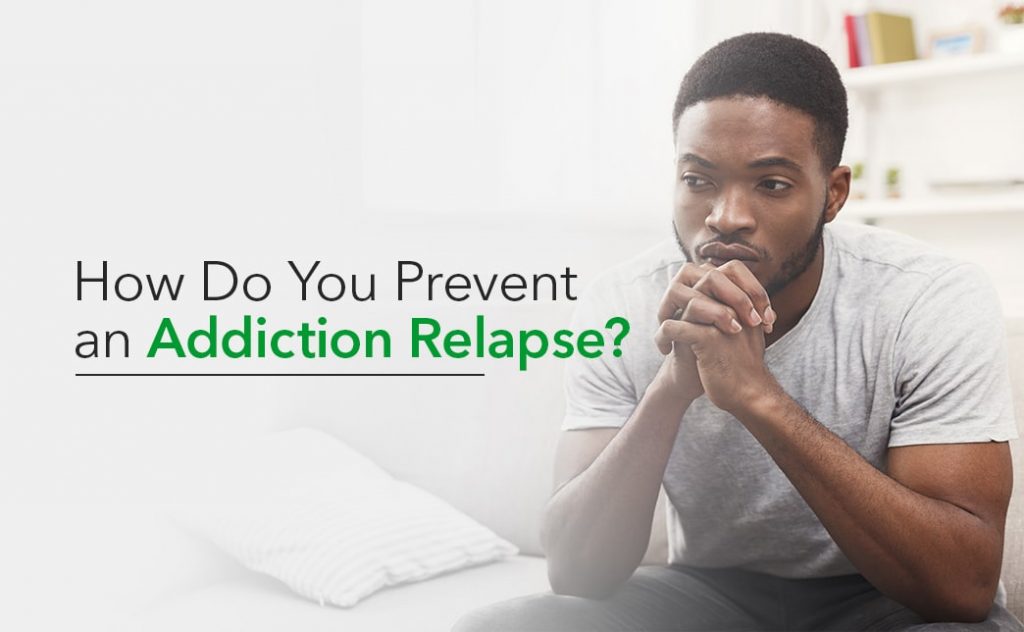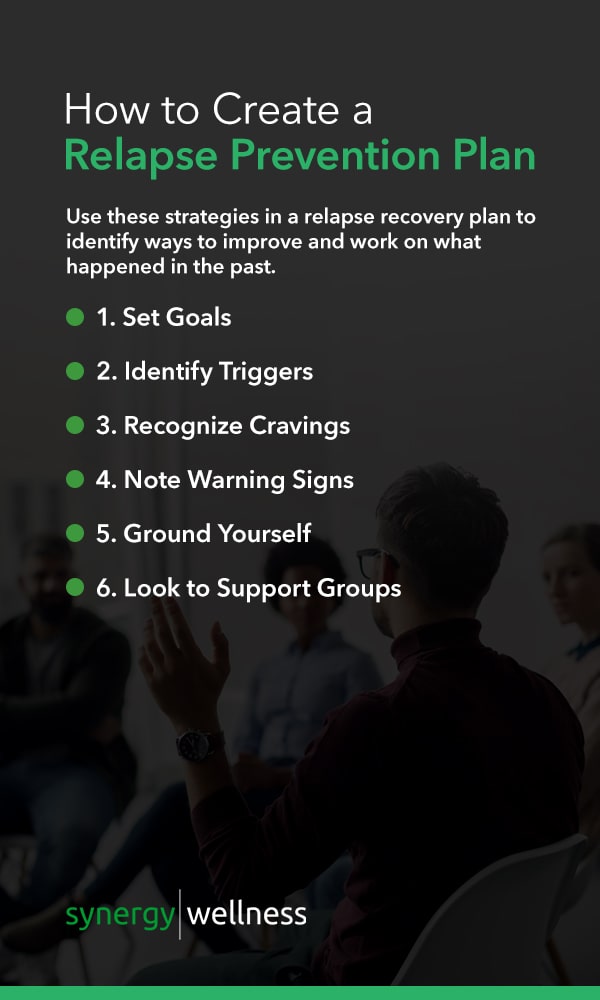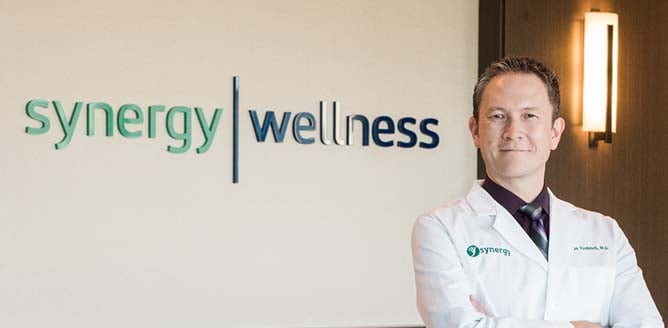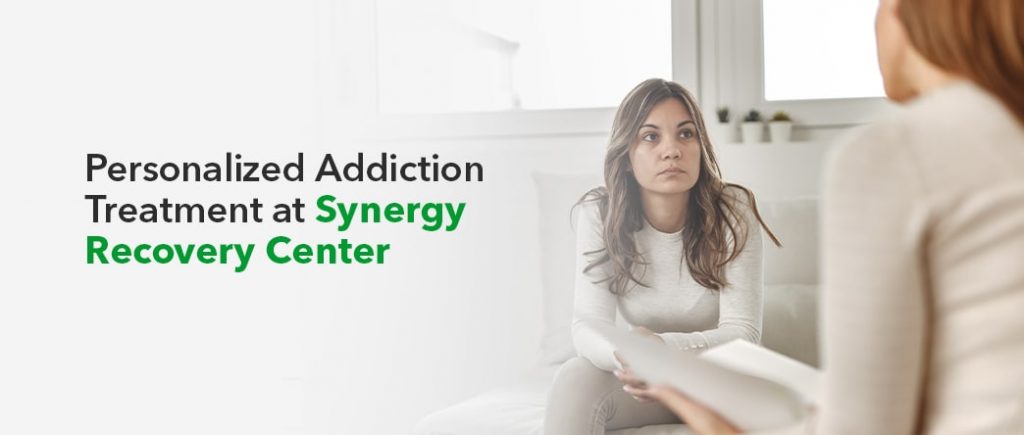
Addiction treatment is a long journey marked with periods of success and setbacks. No journey is the same, and the important thing is to have a plan and a lifestyle that sets you up for balance. There is no cure-all or immediate fix for addiction, but addiction can be treated and controlled.
What Is Addiction Relapse?
Relapse occurs when someone starts using a drug again after being sober for a time. Environmental stressors, negative moods, anxiety and problems in interpersonal relationships are all factors that can trigger an addiction relapse. Relapse rates are generally high — more than two-thirds of individuals relapse within weeks to months of initiating treatment. This can lead many people who aren’t battling an addiction to wonder, why do people relapse?
Research has shown that chronic drug use can actually change the biological nature of the brain, resulting in different coping mechanisms that make the user more liable for a substance abuse relapse. Chronic use of a drug creates a greater desire for it when the drug is cut off. This desire only becomes stronger as the user encounters risk factors.

Risks of Addiction Relapse
A person going through addiction treatment can experience a vast range of triggers and risk factors that leave them wanting to use again. Someone who isn’t familiar with addiction may be surprised to find that even small, trivial tasks can pose more extensive problems for someone with an addiction illness.
Whether you’re a family member caring for someone with addiction or you’re battling addiction yourself, it’s essential to identify what these risks are in a broader sense and to know how to navigate them.
- Stress: Stress can make life tough on someone battling addiction. Stress can arise from anywhere. It could be a new job, unemployment, financial problems or general worry about a daily commute. The stressful event itself may not cause any harm, but the person’s ability to cope with it is what matters here. People who have an addiction often have difficulty navigating ways to defend against stress, and a dependency on a drug makes coping more complex.
- Negative mood: A negative, depressed mood can make using again seem more appealing. In a poor mood, someone is less likely to have the necessary defenses to prevent a relapse, and this internal conflict can pose a challenge.
- Lack of social structure: Sometimes, after seeking treatment and getting help, someone may feel isolated from others or feel guilty about what they’ve done or who they have hurt. A lack of social structure can be a risk for relapse. Without the proper support and guidance, it’s hard for someone to stay positive and focused on a balanced, structured lifestyle.
- Anxiety: Anxiety is a common mental phenomenon that millions of people deal with, but it can be especially difficult for those with addiction. Often drug use is first started to deal with anxiety, so experiencing it while sober can be a risk for relapse.
- Interpersonal relationships: Relationships play a big part in addiction. An addiction can harm friendships, family ties and romantic relationships alike, so there’s always an added pressure there when it comes to addiction. A breakup, separation or a family member cutting someone off can all be serious risks.
- Pain: Something as simple as a bad fall can leave someone wanting to use again. As is the case with some painkillers, sometimes physical pain preceded the addiction in the first place. Coping with pain, whether it be a headache or a severe injury, is another risk that someone has to consider when traversing the journey of addiction.

The Three Stages of Addiction Relapse
Relapse isn’t the sudden plunge that many people think it to be. In reality, it’s an often slow process with many warning signs along the way. Relapse doesn’t happen when someone picks up the drug. Instead, it starts weeks or even months before, with little thoughts or actions that build.
If someone can identify these signs as red flags and recognize they’re on the way to relapse, then they can build techniques to counter them. There are three main stages of relapse — emotional, mental and physical.
Emotional
The emotional stage is the first stage in the addiction relapse process. Two main themes of the emotional stage are denial and self-care. In this stage, people will identify that they don’t want to use again. Though they may realize and say this, their actions reflect a different message.
They may push away self-care behaviors, bottle up emotions and avoid counseling meetings and sessions. People also isolate themselves, focus on other people and stray from healthy eating habits and sleeping routines.
In this stage, it’s crucial for people with an addiction to identify ways to indulge in healthy self-care. Healthy eating habits and adequate sleep are only the starting points for successful self-care. It also involves engaging in hobbies and activities that bring enjoyment and contentment.
Mental
The mental stage marks the point where people are in conflict about whether to use again. They want to stay sober and avoid using, but another side tells them to cave and find ways to get the drug again. This stage is marked by cravings, thinking about people and places associated with the drug, glamorizing and minimizing past use, lying and finding ways or planning to use again.
Bargaining is a big part of this stage. Individuals will think of ways and opportunities to make it acceptable to use the drug again, such as a vacation or a wedding. They may start to believe they can take the substance in a controlled way, such as a few times a year, or they may consider switching the substance with another drug.
Some of this mental anguish arises from the stigmatization of relapse. People often find that even thinking about using again can be seen as a sign of failure, and it can bring embarrassment and guilt. Especially if people have a lot of support in the addiction process, thinking about using can feel as though they’re letting down those closest to them. In reality, thinking about using is a natural part of the addiction treatment process, and research has shown that occasional thoughts of using should be normalized in therapy.
Chronic drug use makes it impossible for the memory of the drug to disappear. Instead of marking it as a sign of failure, it should be noted and let go of using healthy coping mechanisms.
Physical
The physical stage is the actual moment when people start using again. This stage marks the culmination of the mental and emotional stressors that have placed them in a spot where they feel the need to use. Often it’s an opportunity where they feel they can get away with using without being caught.
Many people believe an relapse is a simple yes and no that comes down to one moment and one decision. But it’s actually a long, drawn-out process with many steps and warning signs.
Are Relapses and Overdoses Linked?
One of the dangers of relapsing is overdose. An overdose occurs when someone takes an excessive and dangerous drug dose, often resulting in severe symptoms and even death. Overdose can also happen when multiple substances are mixed before or when they’re ingested.
After being sober for a time, your tolerance decreases for the drug you used before. If you relapse and try to take the same dose you used to, it could prove to be fatal. Tolerance can even fall after a short time of not using.
Those new to treatment may be especially vulnerable, as they lack the necessary skills and methods to fend off a relapse opportunity. In this way, relapse and overdose are linked. This is why it’s so essential to build a strong foundation that emphasizes social support, self-care and knowledge of warning signs and triggers.
The three stages of addiction relapse show how people can identify the road to relapse and stop before they’ve gone too far. These steps can guide people to happier and healthier days with the necessary tools and could save a life.
Is Addiction Relapse Inevitable or Preventable?
Relapse is common, but it is also preventable. People go through treatment without relapsing every year, so it’s definitely attainable and possible. However, it’s helpful to know the warning signs and build a lifestyle attuned to your needs. A lack of a clear plan and poor social structure often make it hard for someone to stay on the path of recovery.
You can get through life without the constant fear of relapse. You just need the necessary skills and plans to help you achieve success and balance. A relapse prevention plan can give you that.
A relapse prevention plan can offer the necessary steps and guidance to keep you grounded, give you a plan and lead you away from relapse. Because of the dangers and the uncertain nature of relapse, you should build a relapse prevention plan and commit to it.
What Is a Relapse Prevention Plan?
A relapse prevention plan is specifically designed to counter the three stages of relapse. An effective plan targets these three stages and lists several ways to cope with them healthily.
A plan outlines a relapse prevention strategy with tools such as goal-setting, finding support groups and noting triggers and warning signs. A plan could mean committing to a change in lifestyle or could be as small as journaling once a day.
Relapse prevention plans will vary from person to person, and each one can be tailored specifically to the individual designing it. The main goal here is to create and use relapse prevention techniques. If you map out and make a real plan, then you will have a much better chance of avoiding relapse and focusing on the main goal at hand — leading a happy, healthy life and spending it with the people you love.

How to Create a Relapse Prevention Plan
Developing a relapse prevention plan can be challenging. It helps to evaluate your own substance abuse history and reflect on warning signs and triggers that you may want to note. Refer to the three stages of addiction relapse, and tailor your prevention plan with those stages in mind. Again, every relapse prevention plan is different, and it should cater to the things you want to focus on and what you think will be most effective in staying sober.
Use these strategies in a relapse recovery plan to identify ways to improve and work on what happened in the past.
1. Set Goals
Goal setting is very beneficial in the recovery process. Goals don’t have to be broad, overarching dreams. A goal should be measurable and attainable, and it can be something as simple as taking five minutes out of your day to reflect on things in your life you’re grateful for. Small, achievable goals give you momentum in recovery and something to work towards.
2. Identify Triggers
When you write a relapse prevention plan, you should identify triggers and see how they appear in your daily life. Note how you can attempt to cope with these triggers or find ways to stay away from them. Identifying these triggers is essential because you may find that a lifestyle change is needed to counter them. Changing jobs or spending time with different people can bring the kind of positivity and balance you need to stay on the road to recovery.
3. Recognize Cravings
Cravings are a natural part of the recovery process. It doesn’t mean you’ve failed — you’re simply experiencing the common effects of discontinuing chronic drug use. Instead of languishing in these thoughts of craving and feeling negative about them, note them as necessary urges that will come and go. By acknowledging that these cravings are part of the process, you can face them without running from them and move past them to build and grow.
4. Note Warning Signs
Recognize the signs associated with the three stages of relapse outlined above. You can spot these signs as early as the emotional stage. If you find yourself bottling up emotions, isolating yourself and straying from a healthy routine, then it could be time to reframe your strategy and focus on what you can improve on.
Recognizing these warning signs is essential because it will keep you on the right path and highlight ways to do better.
5. Ground Yourself
This step may be overlooked in the recovery process, but it can be very beneficial. Grounding yourself can take many forms, including:
- Journaling: Journaling is a channel to purge your thoughts and feelings. Writing can be cathartic, and it can help to organize your thoughts and see them on paper. Journaling is an excellent way to reflect on past experiences and feelings.
- Meditation and mindfulness: Meditation or mindfulness will help you develop a sense of calm and may even help to combat negative thoughts and feelings. Meditation teaches us to be present with our mind how it is without trying to change it.
- Mind-body focus: Try connecting your mind to your body. Body scans, breath focus or other methods like yoga and tai chi are effective in promoting relaxation.
- Spending time in nature: A simple walk or hike through the woods can offer several benefits. Connecting with nature can lower stress and help you manage your mood.
- Exercise: Exercise can boost your mood by releasing pain-reducing chemicals. Regular exercise will help you battle cravings and negative moods.
6. Look to Support Groups
You don’t have to do all this by yourself. Social structure and support from others are paramount when it comes to recovery. Stay involved with support groups and be committed to counseling. Identify others who can hold you accountable and guide you along your journey with positive affirmations and plans.
You can also find people in support groups who can show you how to write a relapse prevention plan or offer relapse prevention tips that have worked for them. These people could even become lifelong friends.
Personalized Addiction Treatment at Synergy Recovery Center
Finding your way along the path to recovery can be intimidating and challenging. But with the right support, guidance and relapse prevention skills, your recovery can become a structured, guided process with all the help you need to succeed.
Synergy Recovery provides that kind of help. Combining medication and counseling, we offer a unique, pleasant experience that allows you to recover from your addiction while also finding ways to lead a positive, successful life. We have an expert team dedicated to providing individual, unique care to our patients. We recognize that recovery is not just about staying sober — it’s about crafting a lifestyle that sets you up for success. Visit us today!




